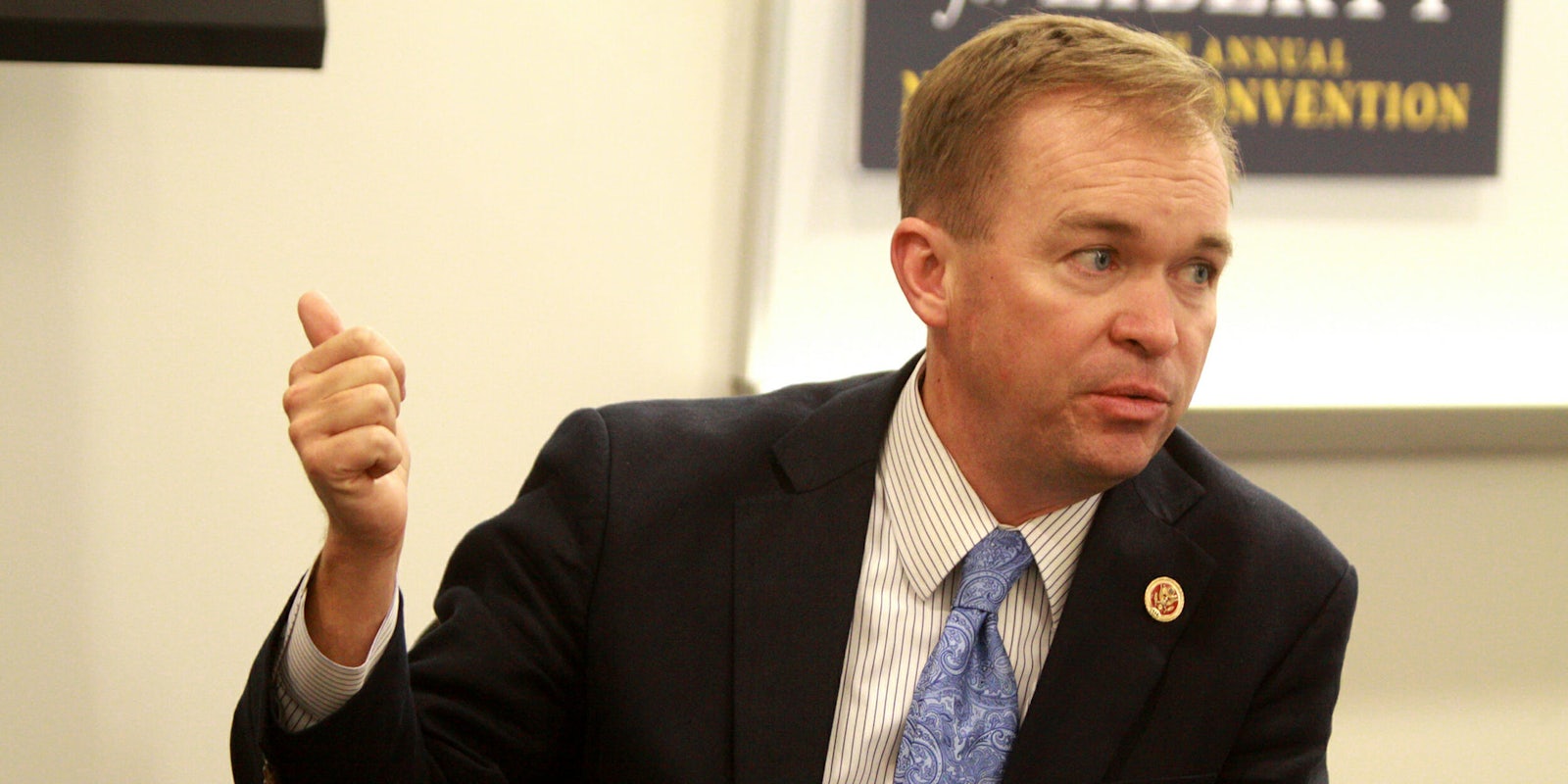There is some serious confusion–and a brewing legal battle–surrounding who will lead the Consumer Financial Protection Bureau (CFPB), a consumer watchdog group created after the Great Recession.
President Donald Trump tapped Mick Mulvaney, who serves as the head of the Office of Management and Budget, to head the agency. However Leandra English, the acting director since Richard Cordray’s resignation late last week, filed a lawsuit seeking to halt Mulvaney’s appointment.
English’s lawsuit argues that the deputy director of the CFPB is expected to serve in an interim capacity until the Senate confirms a new director under the 2010 Dodd-Frank law.
“The President’s attempt to install a White House official at the head of an independent agency—while allowing that official to simultaneously serve in the White House—is unprecedented,” Deepak Gupta, English’s lawyer, said in a statement. “The law is clear: Leandra English is Acting Director of the Consumer Financial Protection Bureau until the Senate confirms a new Director.”
The suit did not deter Mulvaney, however. On Monday, Mulvaney was reportedly given “full cooperation” from the CFPB staff and he showed up to his first day on the job with doughnuts.
https://twitter.com/katierogers/status/935125394767917056
According to CBS White House correspondent Mark Knoller, English was also heading to work.
Both Mulvaney and English are expected to start their day at @CFPB, each claiming to be Acting Director.
— Mark Knoller (@markknoller) November 27, 2017
On Saturday, Trump tweeted his concerns about the CFPB, which was formed after the 2008 financial crisis as a way to monitor Wall Street, calling the agency a “total disaster” and promising to “bring it back to life!”
“The Consumer Financial Protection Bureau, or CFPB, has been a total disaster as run by the previous Administrations pick. Financial Institutions have been devastated and unable to properly serve the public. We will bring it back to life!” Trump wrote.
The Consumer Financial Protection Bureau, or CFPB, has been a total disaster as run by the previous Administrations pick. Financial Institutions have been devastated and unable to properly serve the public. We will bring it back to life!
— Donald J. Trump (@realDonaldTrump) November 25, 2017
The CFPB was established in 2010 as an independent agency responsible for protecting consumers from illegal actions by banks, credit unions, payday lenders, debt collectors, and other financial companies in the United States. How Trump intends to bring it back to life by helping financial institutions—while still protecting consumers—is unclear. Trump’s pick, Mulvaney, has said he wants to eliminate the bureau.
White House Press Secretary Sarah Huckabee Sanders also defended Trump’s appointment of Mulvaney in a statement, referring to a memo written by Mary McLeod, the top lawyer at the CFPB, who seems to agree that Trump has the authority to appoint Mulvaney.
“The administration is aware of the suit filed this evening by Deputy Director English. However the law is clear: Director Mulvaney is the Acting Director of the CFPB,” she said, according to CNN. “Now that the CFPB’s own General Counsel—who was hired under Richard Cordray—has notified the Bureau’s leadership that she agrees with the Administration’s and DOJ’s reading of the law, there should be no question that Director Mulvaney is the Acting Director. It is unfortunate that Mr. Cordray decided to put his political ambition above the interests of consumers with this stunt.”
English is asking the United States District Court for the District of Columbia for a temporary injunction to halt Mulvaney’s appointment while the court rules on its legality.
Update 10:43am CT, Nov. 27: Both Mulvaney and English sent out emails to the staff of the CFPB on Monday. English shared her “gratitude” for the staffers of the agency and ended her note with “Acting Director.”
Shortly after, Mulvaney responded with his own email, according to the Washington Post.
“It has come to my attention that Ms. English has reached out to many of you this morning via email in an attempt to exercise certain duties of the Acting Director. This is unfortunate but, in the atmosphere of the day, probably not unexpected,” he wrote. “Please disregard any instructions you receive from Ms. English in her presumed capacity as acting director.”


